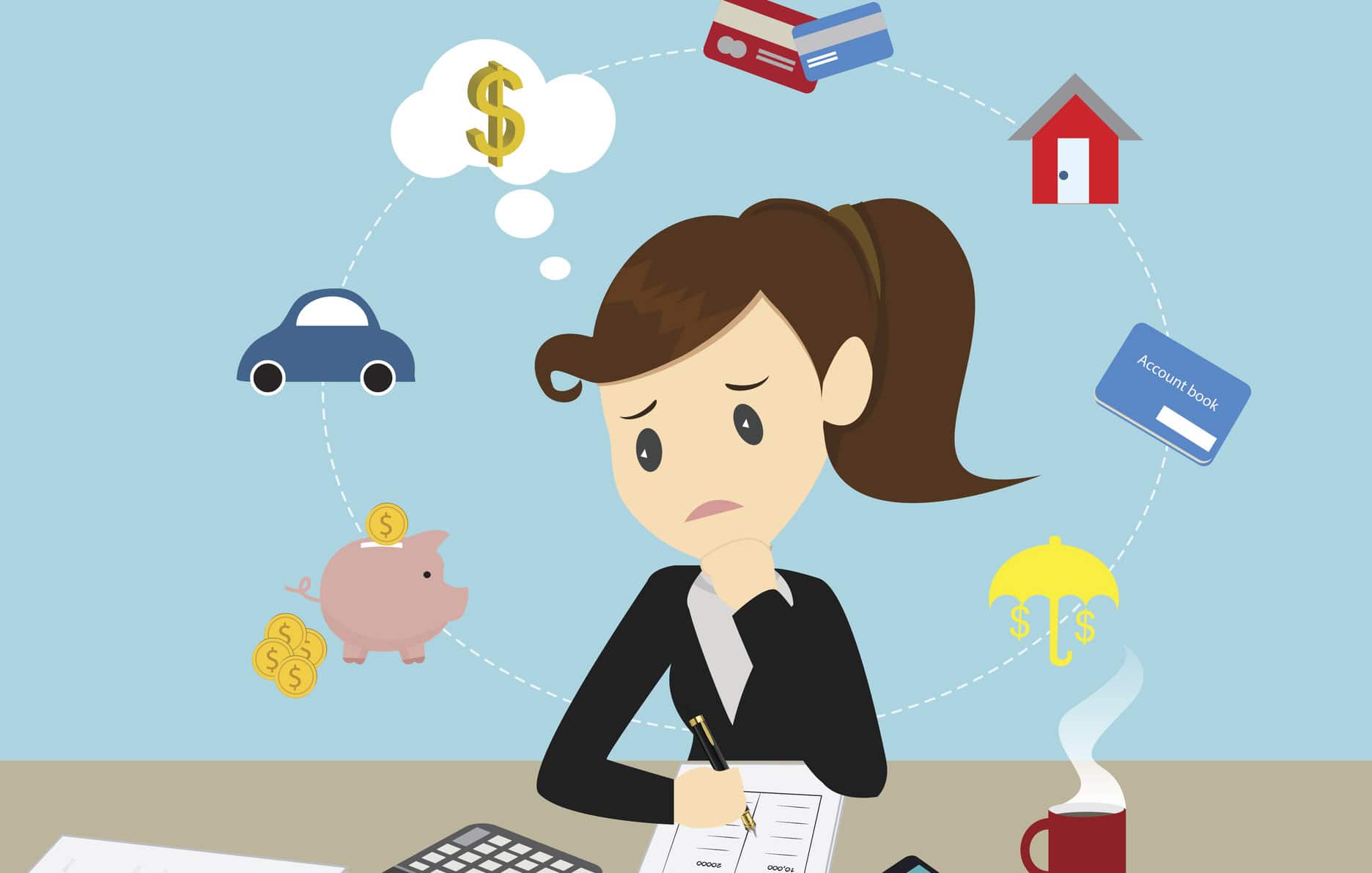Credit cards are like duplicitous safety nets. When you’re short on cash, they can eliminate the crushing decision of choosing between your best friend’s wedding, your sister’s birthday party and that pair of boots you’ve been lusting after for weeks.
But when the habit of ‘sticking it on the card’ gets a little too frequent, debt can easily mount up.
The foreboding news that credit card interest rates have hit a ten year high, according to research website Moneyfacts, does not help matters.
We’re lending more than ever before (at an average rate of 23% APR), but paying back through the nose to be able to afford the luxury of making ends meet.
Dr Paul McLaren is medical director and consultant psychiatrist at The Priory, one of the UK’s leading centres for the treatment of addictions.
As a mental health specialist, he’s seen an increasing number of patients suffering from stress where debt is a significant component.

“The relationship between debt and psychological distress is complex. It is associated with many different mental illnesses both through cause and effect,” he says.
“Debt can arise through problems with ‘impulse control’ – the most obvious being gambling – but in our consumer-driven society we increasingly see shopping and online shopping addiction as a manifestation of mental illness.”
Here, Dr McLaren shares some of the emotional and psychological responses people might experience as a result of credit card debt.
Headaches
One of the most common side effects of the stress incurred by debt is headaches.
A study by The Priory Group found that many young adults in particular were suffering significantly from aches and pains caused by debt, with nearly one in three adults aged 25-34 experiencing regular headaches.
Exhaustion
It is unsurprising that younger adult workers who are worried about debt and housing feel like they must put in the most overtime – with one in 10 of those aged 25-34 working up to 20 hours overtime a week.
If you are working so much that you do not have time for adequate sleep or exercise, then you’re putting a sizeable strain on your mental health.
Anger and fear
As well as adults, children also feel the effects of debt, according to research by the Children’s Society.
The strain placed on family relationships by financial difficulties associated with debt – whether through arguments between parents, or between children and parents – can have a huge impact on children’s wellbeing.
A quarter of parents in a Priory Group study said that debt had resulted in their children feeling stressed or anxious, while 19% said that it contributed to them having mood swings.
Shame and embarrassment
Shame, embarrassment, failure and self-blame are recurring issues where debt is at play.
Patients who come to The Priory with debt issues often feel all of these about their situation.
They may also suffer from very low self-esteem or might have lost confidence in themselves altogether.
Depression and anxiety
Because there are creditors involved in debt (and its collection), money issues can exacerbate the symptoms of depression or anxiety.
This may, in turn, lead to substance misuse and further abuse of the the ‘impulse control’ problem which contributed to its generation.
Breaking that vicious circle is a major challenge in recovery.
Insomnia
Getting enough sleep so that you wake refreshed is an important indicator of a healthy mental pattern.
Debt, and overwork to reduce that debt, can create stress that gets in the way of this.
It is important to know your limits and to understand your personal vulnerabilities: getting enough time for relaxation and exercise and to maintain healthy relationships with family or friends outside of work is imperative.
Relief and restoration of optimism
The good news is that reducing debt and taking back control will have strong effects on your ability to remain calm and in emotional and physical balance.
Many people find that eliminating the problem of debt gives them the chance to step back and think, “how much time am I devoting to the things in life that matter to me, such as my interests, family, hobbies and personal development?”
